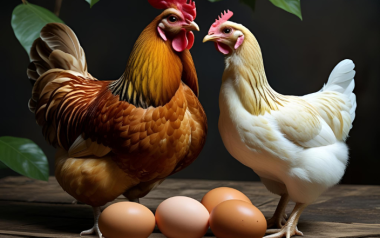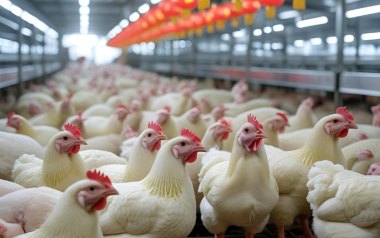Sources: Available upon request
02 Oct 2024
Poultry imports in China decline in early 2024
In the first seven months of 2024, China experienced a notable decline in poultry imports, reflecting significant shifts in the global poultry market. This trend has been influenced by various factors, including changes in international trade dynamics, domestic production adjustments, and health concerns.
In the first seven months of 2024, China experienced a notable decline in poultry imports, reflecting significant shifts in the global poultry market. This trend has been influenced by various factors, including changes in international trade dynamics, domestic production adjustments, and health concerns.
Decline in imports
Between January and July 2024, China’s poultry imports decreased by approximately 20.9%, dropping from $2.94 million to $2.32 million. This reduction is part of a broader trend observed over the past year, where imports have steadily declined due to various external and internal pressures.
Factors contributing to the decline
Several key factors have contributed to this decline in poultry imports:
- Health concerns and trade restrictions: One of the primary reasons for the drop in imports is the outbreak of Newcastle disease in Brazil, one of China’s major poultry suppliers. This led to a significant reduction in Brazilian poultry exports to China, with imports from Brazil falling by 29% year-on-year to 276,100 tons in the first seven months of 2024. Health concerns and subsequent trade restrictions have played a crucial role in this decline.
- Domestic production adjustments: China’s domestic poultry production has also seen adjustments. While overall production has been stable, there have been efforts to increase self-sufficiency and reduce reliance on imports. This shift is part of a broader strategy to enhance food security and control supply chain vulnerabilities.
- Economic factors: Economic conditions, including fluctuations in currency exchange rates and changes in consumer demand, have also impacted import levels. The economic environment has influenced purchasing power and the cost-effectiveness of importing poultry compared to domestic production.
Impact on the market
The decline in poultry imports has had several implications for the Chinese market:
- Price fluctuations: Reduced imports have led to fluctuations in poultry prices within China. While domestic production has helped mitigate some of the supply shortages, prices have experienced volatility due to the reduced availability of imported poultry.
- Market opportunities for domestic producers: The decline in imports has created opportunities for domestic poultry producers to expand their market share. Companies that can meet the quality and safety standards demanded by consumers have benefited from the reduced competition from imported products.
- Consumer preferences: There has been a shift in consumer preferences towards locally produced poultry, driven by concerns over the safety and quality of imported products. This trend has further supported the growth of domestic poultry production.
Future outlook
Looking ahead, the future of poultry imports in China will depend on several factors, including the resolution of health concerns in major exporting countries, economic conditions, and domestic production capabilities. While the current decline presents challenges, it also offers opportunities for China’s poultry industry to strengthen and adapt to changing market conditions.
In conclusion, the first seven months of 2024 have seen a significant drop in poultry imports in China, driven by health concerns, domestic production adjustments, and economic factors. This trend has reshaped the market, presenting both challenges and opportunities for stakeholders in the poultry industry.








































